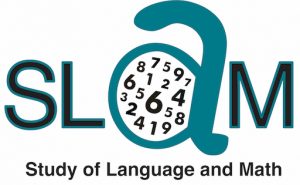Study of Language and Math (SLaM)
Deaf children rarely experience typical language exposure in terms of quality and timing; that is, they often receive linguistic input that is less complete at a later point in developmental time compared with their normally hearing peers. We hypothesize that a delay in the acquisition of number words due to insufficient access to language input in may negatively affect deaf children’s numerical cognition (Spaepen, Coppola, et al., 2011), which might compromise basic mathematical abilities (e.g., counting), as well as more advanced mathematical concepts (e.g., word problems). Our Study of Language and Math project (SLAM) investigates the effect of deaf children’s number language on their ability to count, estimate quantities, and understand foundational mathematical principles. The project is supported by an NSF CAREER Award.
Participants: Marie Coppola, Jessica Contreras, Deanna Gagne
Collaborators: Anna Shusterman, Elizabet Spaepen, Molly Flaherty, Elizabeth Spelke, Susan Goldin-Meadow, Susan Carey
Papers
Spaepen, E., Coppola, M., Flaherty, M., Spelke, E., Goldin-Meadow, S. (2013). Generating a lexicon without a language model: Do words for number count? Journal of Memory and Language, 69(4), 496-505.
Coppola, M., Spaepen, E., Goldin-Meadow, S. (2013). Communicating about quantity without a language model: Number devices in homesign grammar. Cognitive Psychology, 67, 1-25.
Spaepen, E., Coppola, M., Spelke, E., Carey, S., and Goldin-Meadow, S. (2011). Number without a language model. Proceedings of the National Academy of Sciences, 108(8): 3163-3168.
